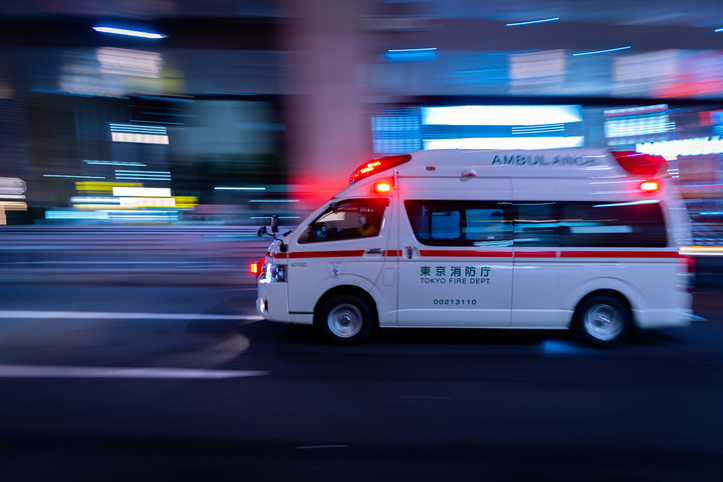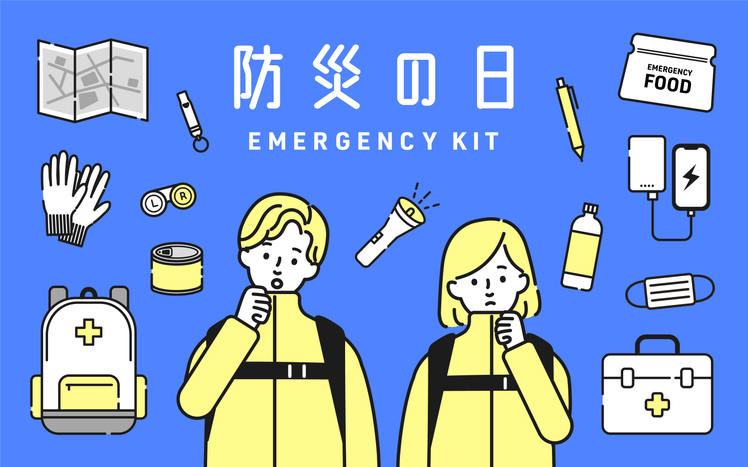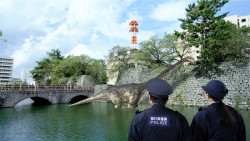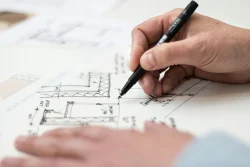
October 30, 2024
What to Do in a Medical Emergency in Japan
A guide to English-speaking hospitals and emergency care
Dial 119 for an ambulance or fire department
Dial 110 for police
If you or someone else requires urgent medical assistance, call 119 immediately. Operators often have a basic understanding of simple English, especially in major cities, but it’s helpful to know a few key phrases in Japanese:
“Byoin” (病院) – Hospital
“Shobosho” (消防署) – Fire department
“Keitsatsu” (警察) – Police
“Kyuu-kyuu”(救急) – Ambulance
“Kaji” – (火事) Fire
Even if an English-speaking operator is available, speak slowly and clearly when stating your address so that they can understand.
Japan is known for its excellent healthcare system, but knowing how to handle an emergency can make all the difference. Here’s a comprehensive guide on what to do if you find yourself in a medical emergency in Japan.

Hospitals versus Local Clinics versus Emergency Clinics
If you need medical attention but are not in immediate danger, you might visit a local clinic or doctor’s office for non-urgent care.
According to Japan Healthcare Info, “Outside normal clinic hours and on holidays, emergency clinics are the first place to visit if your condition is not serious enough to need an ambulance but you need to seek medical help.”
“Major hospitals have emergency rooms that are available 24 hours a day, 365 days a year. These are mainly for patients in need of critical care.”
Importantly, patients who are not considered critical are often refused care. Instead, you’ll be advised to leave and visit an emergency clinic.
Because of this, it’s recommended that you call the clinic or hospital before you go. This way you can ensure that they will accept you as a patient upon arrival. You don’t want to travel there only to get rejected—especially if you need urgent medical care.
English-Language Hospital Access in Tokyo
Many hospitals in Tokyo have English-speaking doctors or offer translation services to assist international patients. Here are some that handle emergency patients, are known for English-speaking services, and are open 24/7:
Tokyo Medical University Hospital
Address: 6-7-1 Nishishinjuku, Shinjuku-ku
Phone: +81 3-3342-6111
Keio University Hospital
Address: 35 Shinano-machi, Shinjuku-ku
Phone: +81 3-3353-1211
St. Luke’s International Hospital
Address: 9-1, Akashi-cho, Chuo-ku
Phone: +81 3-3541-5151
Juntendo University Hospital
Address: 2-1-1 Hongo, Bunkyo-ku
Phone: +81 3-3813-3111
Showa University Hospital
Address: 1-5-8 Hatanodai, Shinagawa-ku
Phone: +81 3-3784-8000
Check out our list of English-speaking clinics in Tokyo for more information.
Health Care – English Assistance
JNTO
TEL: 050 3816 2787
WEB: https://www.mlit.go.jp/kankocho/content/001327108.pdf
+ 24/7 hotline for tourist information or assistance in cases of accidents & emergencies
Dr. Passport
TEL: 03 5367 2119
WEB: https://dr-passport.com/en/
+ Mobile medical support app for iOS and Android that can be used to translate symptoms & medical history to Doctors
AMDA
Hours: 10:00-16:00 (Mon-Fri)
TEL: 03 6233 9266
WEB: https://www.amdamedicalcenter.com/activities
+ Provides helpful information about healthcare in Japan and offers guidance to foreign residents
Japan Helpline
TEL: 0570 000 911 / 03 3435 8017
WEB: http://jhelp.com/
+ 24/7 non-profit Nationwide Emergency Assistance service for the foreign community in Japan
What to Expect at a Japanese Hospital
Emergency Rooms
Hospitals in Japan have emergency rooms (ERs) equipped to handle critical situations. When you arrive, you’ll need to provide personal identification and details about the emergency. Be prepared for potential language barriers; having someone who speaks Japanese, or using an app, can be beneficial.
Medical Costs
Japan’s healthcare system requires payment for medical services. While visitors should have travel insurance that covers medical expenses, be aware that you may need to pay upfront and claim reimbursement later. Keep all receipts and documents related to your treatment.
Language Assistance
Many hospitals in major cities have staff who can speak English, but not all. If language barriers pose a challenge, try using translation apps or contact your embassy for assistance. Some hospitals might also offer phone interpretation services.
Insurance for Tourists and Residents
Travel Insurance For Tourists
Most comprehensive travel insurance plans should include medical coverage. This can help cover expenses related to hospital stays, medical treatments, and emergency evacuations. Check with your insurance provider to understand the extent of your coverage.
Health Insurance For International Residents
For international residents in Japan, the country has two primary types of public health insurance:
1. National Health Insurance (NHI):
This is available for those not covered by employee health insurance, including self-employed individuals and retirees. It’s managed by local municipal offices and offers comprehensive coverage, including hospital visits, treatments, and prescriptions. Premiums are based on income and household size.
2. Employee Health Insurance (EHI):
For those employed in Japan, this insurance is provided through their employer and is part of the social insurance system. It covers a broad range of medical services and often includes additional benefits such as maternity leave and sick pay.
Payment Methods
Many hospitals and clinics accept credit cards, but it’s always wise to carry some cash in case they don’t. There’s usually an ATM nearby in case you need to pull out cash.
Preparing for Medical Emergencies

Emergency Kit
Prepare a small emergency kit with basic first aid supplies, medications and essential personal information. This is also key to have as part of your emergency supplies in case a natural disaster such as an earthquake or tsunami were to hit.
You might also find the article How Does Japan Prepare for Natural Disasters helpful to read.
Know Your Local Resources
Familiarize yourself with the nearest hospitals and clinics, especially if you’re staying in an unfamiliar area.
Embassy Assistance
If you encounter difficulties or require additional support, your country’s embassy or consulate can provide assistance. They can help with finding medical services, translation, and other essential support.
Local Contacts
Build a network of local contacts who can assist you in emergencies, including friends, coworkers, or local service providers.







